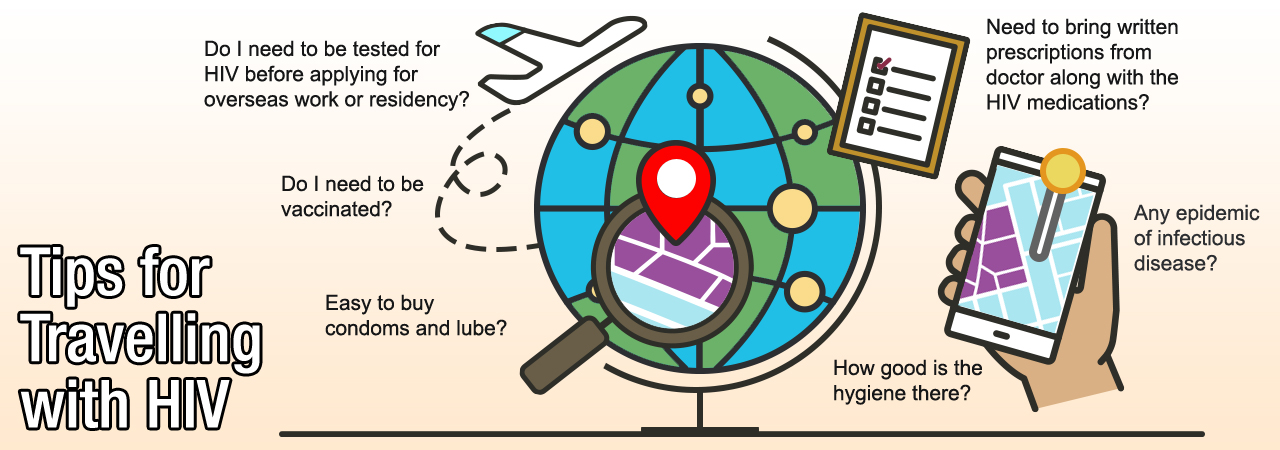
Travelling
People infected with HIV can travel if their health permits. However, it is important to note the following:
There are two basic types of vaccines, live attenuated vaccines and Inactivated vaccines. Live, attenuated vaccines are vaccines that contain a weakened but live form of a disease-causing microbe. Although the weakened microbe cannot cause the disease (or can cause only mild disease), the vaccine can still trigger an immune response. Inactivated vaccines are vaccines that are made from dead microbes. There is no chance that an inactivated vaccine can cause the disease it was designed to prevent.
In general, to be safe, people with HIV should get inactivated vaccines to avoid even the remote chance of getting a disease from a live, attenuated vaccine. HIV can weaken body’s immune response to a vaccine, making the vaccine less effective. In general, vaccines work best when your CD4 count is above 200 copies/ml. Also, by stimulating your immune system, vaccines may cause your HIV viral load to increase temporarily.
Because HIV medicines strengthen the immune system and reduce HIV viral load, people with HIV may want to start antiretroviral therapy (ART) before getting vaccinated whenever possible. In some situations, however, immunizations should be given even if ART has not been started such as flu vaccination because the risk of getting flu is the greatest.
Vaccines are especially critical for HIV infected person, please consult Travel Health Service of DH or your doctor if you have any questions concerning immunization. For more references, please visit Centers for Disease Control and Prevention.
Some countries may require visitors or foreign workers to take HIV antibody tests. At present, there is no such regulation in Hong Kong. Contact respective embassies or consulate offices for information. Moreover, anal sex is prohibited and punishable in some countries which may or may not be a concern for you. The Global Database on HIV related travel restrictions contains information that you may find useful as a reference.
- Have enough medications for your trip. Ask your doctor for a letter stating that it is prescribed medication for personal use (no need to specify diagnosis).
- Pack plenty of condoms and lube. They may not be available in the countries you are travelling to or their quality may be poor.
- Clean and adequately cook the food before consumption. Avoid raw food and unboiled water.
- Avoid touching stray animals or wild animals.